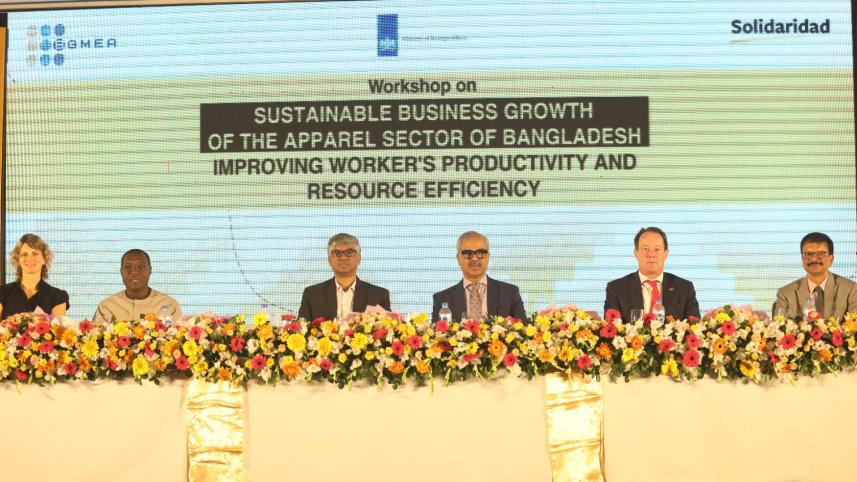Focus on competitiveness to wean off subsidies

Entrepreneurs should start working on enhancing their competitiveness as large amounts of government subsidies and incentives can not be provided once Bangladesh attains developing country status in 2026, said Tapan Kanti Ghosh, senior secretary to the commerce ministry.
He also underscored the need for grooming skilled human resources, saying it would be required to face challenges that would arise when Bangladesh attempts to graduate to developed nation status.
"We have to ensure some policy support to continue the trend in RMG exports as well as competitiveness in the global market," he told a workshop as chief guest at Radisson Blu Dhaka Water Garden on Tuesday.
Solidaridad Network Asia organised the workshop styled "Sustainable Business Growth of the Apparel Sector of Bangladesh: Improving Workers Productivity and Resource Efficiency" with support from the Dutch government's Ministry of Foreign Affairs, says a press release.
Solidaridad is an international network organisation working in over 40 countries "to create fair and sustainable supply chains" by enabling "farmers, miners and workers to earn a decent income, shape their own future, and produce in balance with nature".
It is implementing a "Reclaiming Sustainability in the Apparel Industry of Bangladesh" project with the Bangladesh Garment Manufacturers and Exporters Association (BGMEA) for improving the Bangladesh apparel industry's sustainability norms and practices and make it more inclusive.
Every factory has the potential for sustainable green growth with the right policy framework and a comprehensive plan for its implementation, said Thijs Woudstra, deputy ambassador of the Netherlands to Bangladesh.
Faruque Hassan, the BGMEA president, emphasised the critical importance of addressing human rights and environmental concerns in today's interconnected global economy.
Selim Reza Hasan, country manager-Bangladesh, Solidaridad, highlighted on reclaiming sustainability in the apparel sector and focused on making it more inclusive.
Prof Ijaz Hossain, energy and environment expert and dean of engineering at the Bangladesh University of Engineering and Technology, Neha, senior manager for gender at Solidaridad Network Asia, Vidiya Amrit Khan, a BGMEA director, Mustafain Munir, director of CYCLO Recycled Fibers, Heske Verburg, managing director of Solidaridad Europe, Shams Mahmud, managing director of Shasha Denims, Tanzila Tajreen, senior policy adviser of the Dutch embassy in Dhaka, Mohidus Samad Khan, chief sustainability officer of Beximco Ltd, and Rabeya Khandaker, additional director of Bangladesh Bank, also spoke as panellists.



 For all latest news, follow The Daily Star's Google News channel.
For all latest news, follow The Daily Star's Google News channel.
Comments